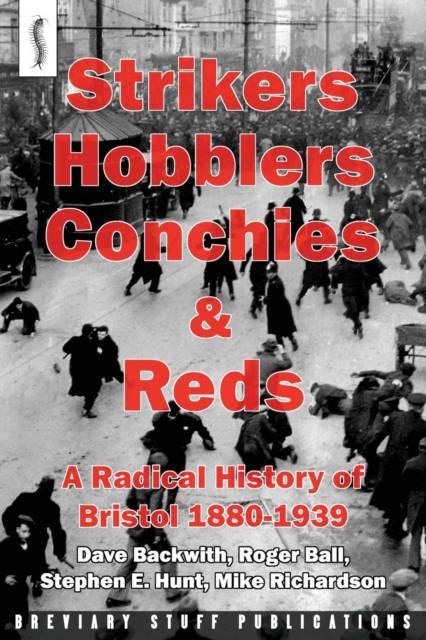
- Retrait gratuit dans votre magasin Club
- 7.000.000 titres dans notre catalogue
- Payer en toute sécurité
- Toujours un magasin près de chez vous
- Retrait gratuit dans votre magasin Club
- 7.000.0000 titres dans notre catalogue
- Payer en toute sécurité
- Toujours un magasin près de chez vous
Strikers, Hobblers, Conchies & Reds
A Radical History of Bristol, 1880-1939
Roger Ball, Stephen E Hunt, Mike Richardson
Livre broché | Anglais
55,95 €
+ 111 points
Description
In the 1970s and 80s a revival of interest emerged in researching Bristol's vigorous radical past, which has been echoed in the more recent historical studies concerning the involvement of the Bristol women's movement in the nineteenth century in anti-slavery campaigns, social reform, and the struggle for the emancipation of women. However, significant gaps in our knowledge still exist and there have been too few works that focus on the local dimension in examining, over an extensive time span, the pattern and dynamics of working class movements. This collection of essays from members of the Bristol Radical History Group traces the relationship between labour struggles and the new ideas and practice of general unionism, socialism and anarchism in Bristol and the surrounding area from the late nineteenth century through to the inter-war years. Our analysis of this important period focusses on the experiences and actions of the participants and their organisations from the unruly River Pilots fighting to maintain their traditional ways of working, through the massive strike waves of the 1890s and the Great Unrest of the pre-WW1 years to the violent unemployed demonstrations of the 1930s. Along the way we sample the delights of coffee houses, see the emergence of socialism and anarchism as distinct currents in the labour movement and discover the radical ideas which originally lay behind the garden suburbs of Southmead, Knowle West and Sea Mills.
Spécifications
Parties prenantes
- Auteur(s) :
- Editeur:
Contenu
- Nombre de pages :
- 366
- Langue:
- Anglais
Caractéristiques
- EAN:
- 9780992946609
- Date de parution :
- 10-12-14
- Format:
- Livre broché
- Format numérique:
- Trade paperback (VS)
- Dimensions :
- 156 mm x 234 mm
- Poids :
- 562 g

Les avis
Nous publions uniquement les avis qui respectent les conditions requises. Consultez nos conditions pour les avis.






